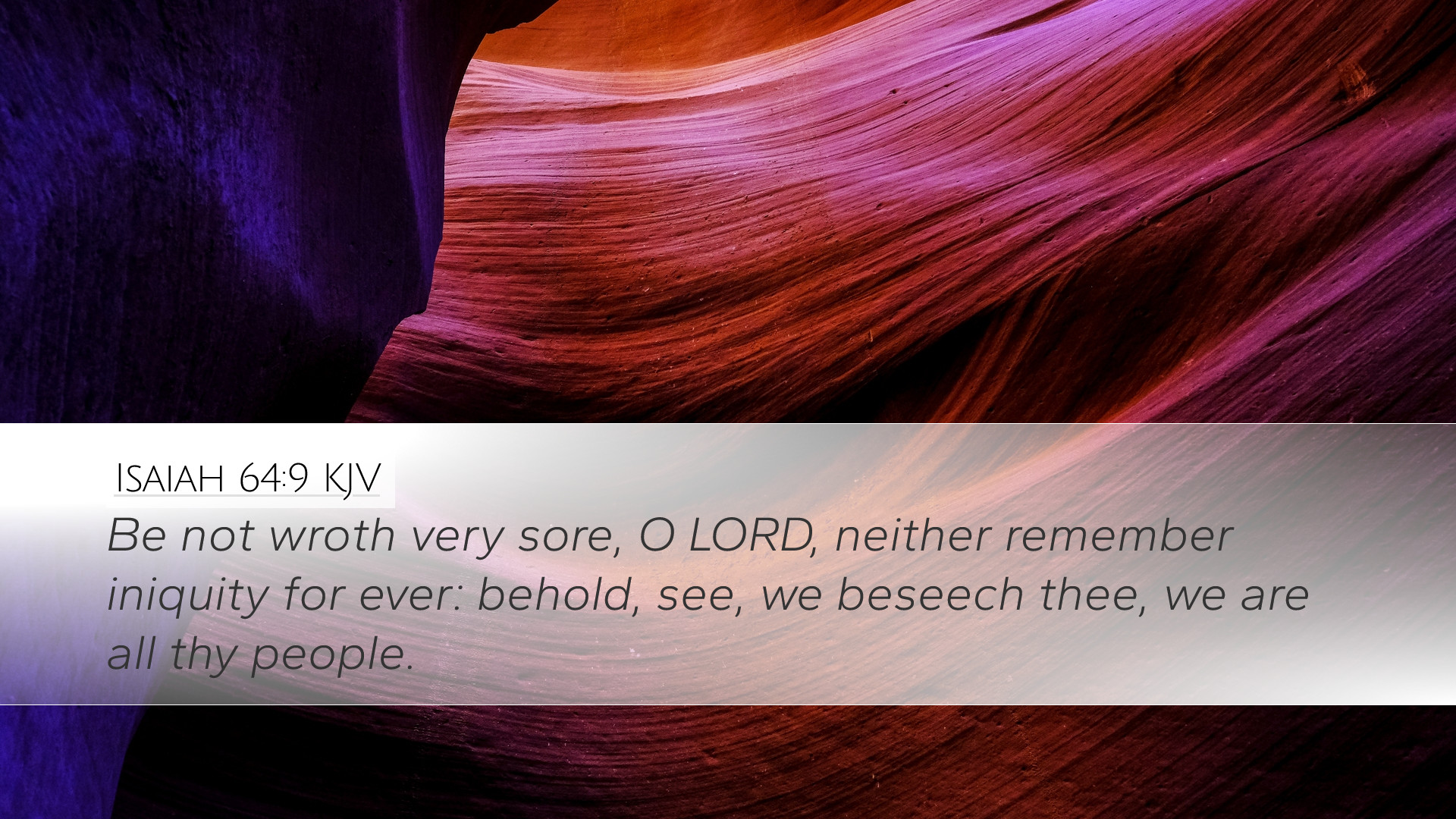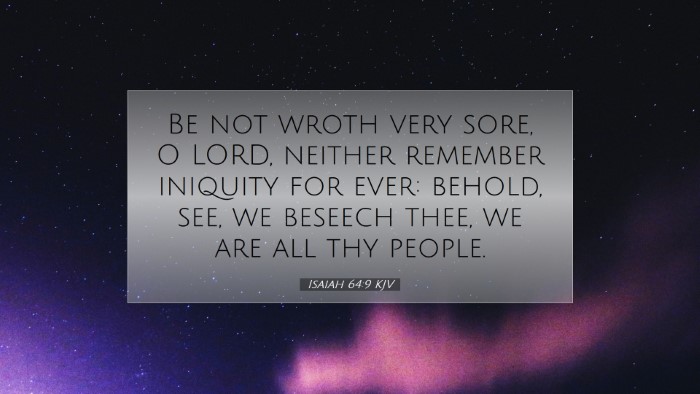Commentary on Isaiah 64:9
Isaiah 64:9 states: "Do not be furious, O Lord, nor remember iniquity forever; Indeed, please look—we are all Your people!" This verse reflects a profound plea for mercy, demonstrating the tension between divine justice and human sinfulness.
Contextual Background
In this chapter, the prophet Isaiah expresses the deep anguish of Israel after a time of judgment. The earlier verses portray a vivid image of God's presence and the resultant transformation it brings. Yet here, there is an urgent plea for God's mercy.
Divine Fury and Human Iniquity
Isaiah begins with a reminder of the seriousness of divine anger. Matthew Henry notes that such pleas from the faithful reflect their understanding of God's holiness. It suggests an acute awareness of personal and collective sinfulness—a recognition that must precede any request for mercy.
The Nature of God’s Fury
Albert Barnes teaches that God's fury is not arbitrary, but rather a response to sin. This contrast serves as a reminder that the holiness of God cannot tolerate iniquity. The cry, "Do not be furious," is thus rooted in a desire to restore relationship rather than to invoke wrath.
A Call for Mercy
The plea, "nor remember iniquity forever," indicates an understanding of God’s capacity to forgive. Adam Clarke elaborates that remembering iniquities serves the purpose of divine judgment, yet the appeal here is for God to overlook the transgressions of His people, highlighting the depth of their need for compassion.
Spiritual Reflection
This heartfelt cry is vital for pastors and theologians who seek to understand the dynamics of repentance and mercy. Acknowledging sin allows for the recognition of grace. Reflecting on this generates a deep appreciation for the sacrificial work of Christ, which satisfies the requirement of justice while offering forgiveness.
The Identity of God’s People
The concluding phrase, "Indeed, please look—we are all Your people," is a powerful declaration of identity and belonging. It connects the plea for mercy to the covenant relationship that God has with His people. Matthew Henry emphasizes that understanding oneself as part of God’s people fosters humility and a yearning for reconciliation.
Implications for Ministry
For pastors, this verse speaks to the heart of ministerial practice. It conveys the importance of teaching congregations about both the justice and mercy of God. This duality reflects the character of God and should be mirrored in the church's approach to discipline and reconciliation.
Conclusion
Isaiah 64:9 encapsulates the essence of the human condition—the tension between sin and the hope of forgiveness. As church leaders and scholars reflect on this verse, they are reminded of the necessity of humility, the transformative power of repentance, and the hope found in God’s gracious character. This verse prompts believers to recognize their need for divine mercy continually, encouraging both personal and communal responses to God's unchanging love.
Further Reflection
In light of Isaiah 64:9, believers are encouraged to engage in self-examination and communal repentance while consistently pleading with God for mercy. The theological implications of this verse resonate through history and call the Church today to embody a spirit of grace balanced with holiness.


